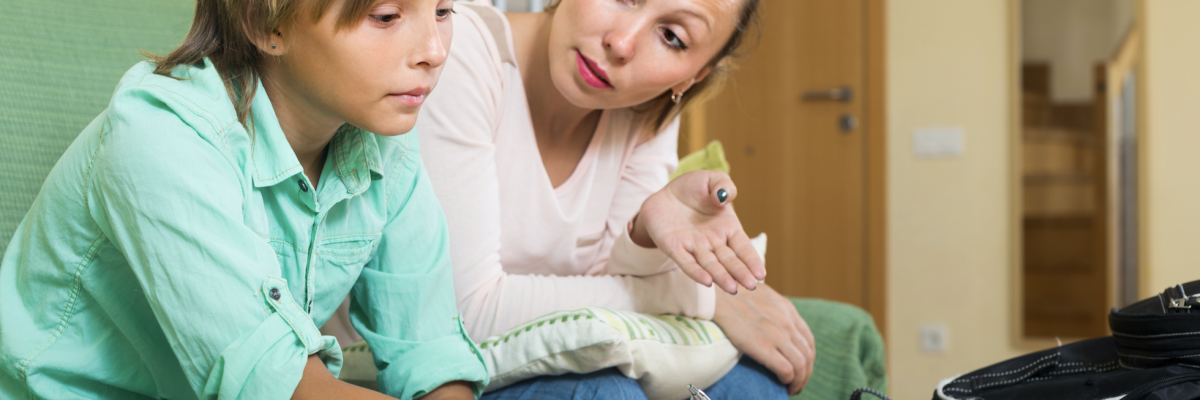
I’ve parented across two generations. My eldest is a 25-year-old mother, and my youngest child is entering first grade. Between these two, the cultural landscape has changed drastically from the early 1990s to now.
When I first started parenting, the mainstreaming and even celebrating of “LGBT” was not exploding all around us, and it did not have free rein into children’s television shows, movies, or library story time. Back then things like fifty-three “genders,” boys allowed in the female bathrooms, and the unreserved promotion of sex in popular teen magazines to girls were not something the average American could have even imagined.
We are witnessing a sea-change rejection of Christian morality and natural law in our time that is unprecedented, and it is coming at us at a manic and, dare I say, demonic speed. It’s fair to say that Catholic families have more bullets to dodge today than just a few years ago, but our parental responsibility to teach our children the truth and meaning of human sexuality remains fixed. Despite this, there remain countless Catholic parents—even rock-solid, theology-of-the-body-believing parents—who will not or cannot address sex and sexual issues with their children.
Case in point
About ten years ago, a friend and Catholic mother of many confessed to me that she had never talked to her young adult and teenage children about sex. I remember looking at her in disbelief as my mind was screaming in my head, “If you don’t do it, who will?” When I heard the same thing from other solid Catholic moms within the next few weeks, I knew we had a widespread problem. These were not lukewarm or poorly catechized Catholics mothers, and yet their children were going through high school and off to college with no parental guidance or teaching in this most crucial area of life.
Shortly after those encounters, I found a printed a copy The Truth and Meaning of Human Sexuality: Guidelines for Education Within the Family from the Pontifical Council for the Family. Reading over it closely, I took a yellow highlighter and looked specifically for the words “obligation” and “duty.” Here is a small sampling of what I found:
In many cases parents have given up their duty in this field or agreed to delegate it to others, because of the difficulty and their own lack of preparation (1).
If in fact parents do not give adequate formation in chastity, they are failing in their precise duty (44).
Parents in particular have the duty to let their children know about the mysteries of human life, because the family is, in fact, the best environment to accomplish the obligation of securing a gradual education in sexual life (64).
The entire document is invaluable to Catholic parents and woefully underused. In the years that have passed since that time, I have encountered many mothers who are thrilled to know that this document exists and anxious to share it as I did. They want to share the help that the Church gives parents in navigating the incredible sexual confusion we are encountering all around us.
What next?
Once a parent understands his or her duty to address the sexual issues, what then?
Parents of small children must, above all, be mindful of the latency period, or what St. John Paul II described as the “years of innocence.” From the age of about five until puberty, children should be left undisturbed by too much information about sex. Young children certainly notice the differences between the sexes, but they naturally concern themselves with innocent play, learning social skills and advancing in their studies. They see the healthy role modeling of the sexes by watching parents interact, and that is enough.
But what if the latency period is violated by receiving explicit sexual information too early? In this case, The Truth and Meaning of Human Sexuality notes that parents must begin to provide “carefully limited sexual information, usually to correct immoral and erroneous information” (84). This may be uncomfortable for the parent, but it has to be done.
Around the onset of puberty, more explicit sex education is necessary, and the best approach is to be joyful, factual, and always presented within the context of our beautiful Catholic Faith. Don’t shy away from it! My husband and I have yet to raise a child who doesn’t understand why the Church teaches as it does. Although our children retain their free will and may reject the moral law at any time, the nature and design of our bodies are incredibly clear, and the negative consequences of violating that nature and design are evident all around them. Your kids and mine are able to understand God’s plan for human sexuality with little trouble when it’s presented to them in truth and love, with no fear or hedging.
Above all, let your adolescent know that he or she may ask you anything. Nothing—and I do mean nothing—is off limits for discussion. Open and honest discussion is key to assuring that your child will willingly come back to you with each subsequent question, not approach a peer or search the internet.
While the bullets coming at your child’s innocence and virtue are more numerous and varied today than they were even a few years ago, the shield that protects them is exactly the same: the truth and meaning of human sexuality, designed by God himself, presented by confident parents who live that truth in their own lives.



